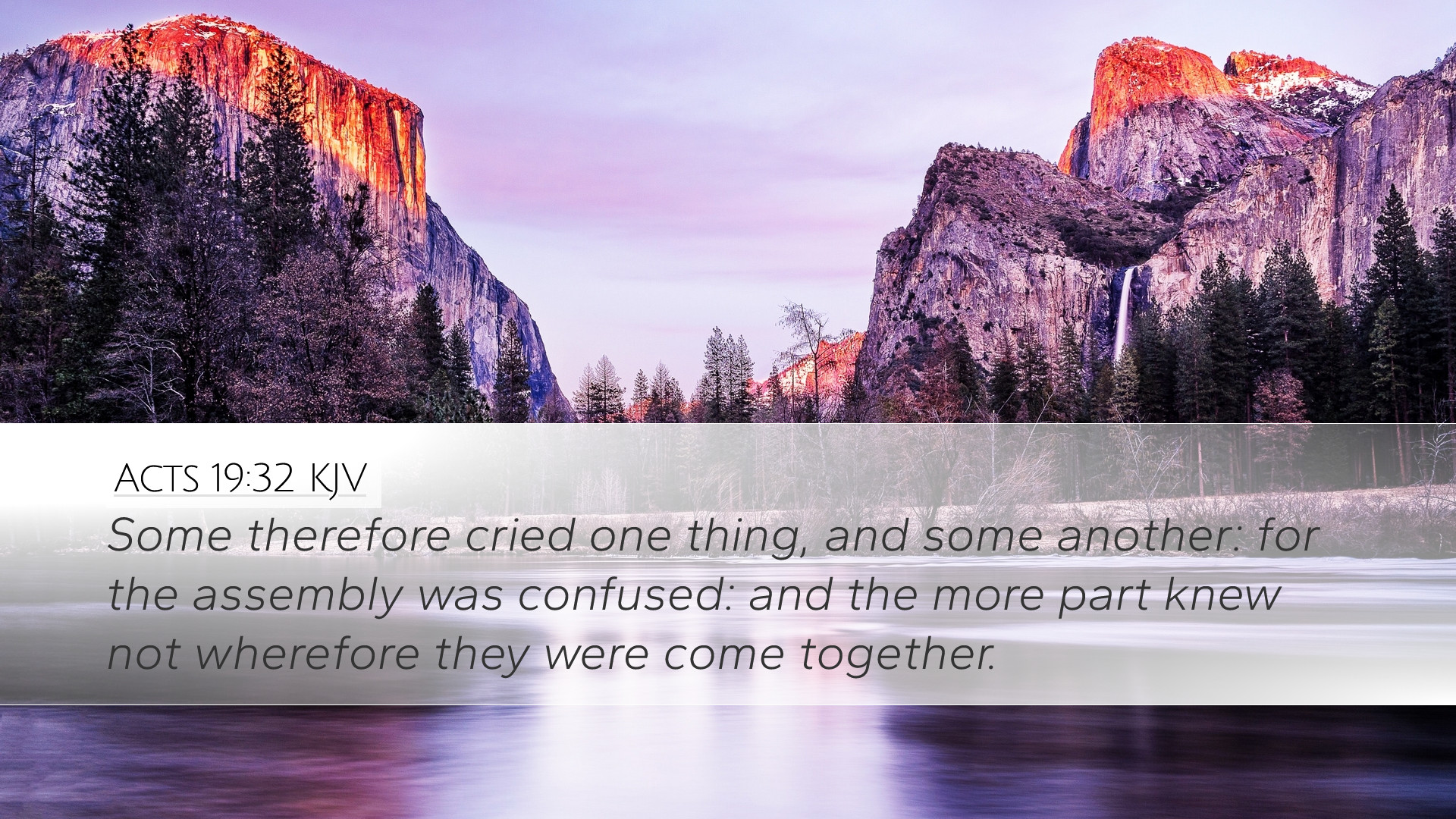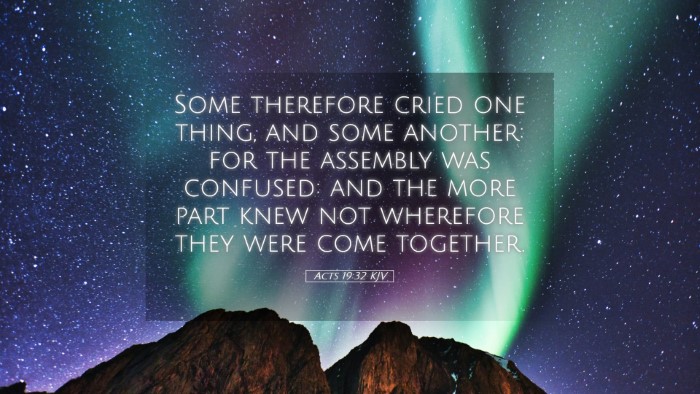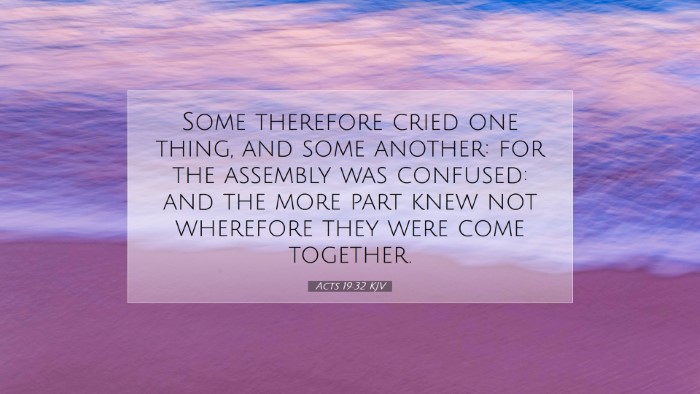Commentary on Acts 19:32
“So then, some cried one thing, and some another: for the assembly was confused; and the more part knew not wherefore they were come together.” - Acts 19:32
Contextual Background
The passage in Acts 19:32 occurs in a significant context during Paul’s ministry in Ephesus. The city was experiencing tumult as a result of the burgeoning Christian movement, which directly threatened the local economy tied to the worship of Diana, the goddess of the Ephesians. This atmosphere of confusion and conflict sets the stage for understanding the deeper implications of this verse.
Overview of Commentary Perspectives
Various commentators provide valuable insights into the complexities of this assembly's confusion, highlighting the nuances of mob psychology, the socio-religious context, and the theological implications for the early church.
Matthew Henry's Insights
Matthew Henry notes that this verse illustrates the chaotic nature of a mob, where there is little to no rational engagement amongst the participants. He points out:
- The role of emotions: When emotions run high, reason often departs. Henry emphasizes how the assembly in Ephesus was driven by unreasoned fervor.
- Mixed motives: He observes that different motives among the crowd led to disunity, reflecting the diverse interests that often clash in societal tensions.
- The challenge to the apostles: In such environments, the challenge for the apostles was to bring clarity and truth amidst the confusion.
Albert Barnes' Observations
Albert Barnes provides a detailed analysis of the dynamics at play in this assembly:
- Motions without clarity: He remarks that many in the assembly did not even comprehend why they had gathered, a testament to the nature of crowd behavior where individuals are often swept along without knowledge or understanding.
- Spiritual contrast: Barnes contrasts this chaotic assembly with the unity and purpose found within the church. He argues that the followers of Christ have a clearer purpose and should thus aim for unity and understanding.
- Divine providence: He also suggests that even in confusion and chaos, God’s providence remains intact, leading to eventual resolution and furthering of the Gospel.
Adam Clarke’s Commentary
Adam Clarke delves deeper into the implications of the crowd’s behavior and the spiritual ramifications for the early church:
- The psychological impact: Clarke emphasizes the impact of mass psychology, noting how individuals may act contrary to their beliefs when influenced by a collective spirit.
- Contrast to Christian peace: He beautifully points out that true Christian fellowship is characterized by peace and order, unlike the chaotic assembly described in this verse.
- The importance of discernment: Clarke encourages believers to cultivate discernment, ensuring that their convictions are grounded in understanding rather than swayed by popular opinion.
Theological Reflections
This passage invites several theological reflections for scholars and theologians:
- Human Condition: The chaos observed in Ephesus serves as a reflection of the human condition—often driven by emotions and collective momentum rather than wisdom and reason.
- The Nature of Assembly: It raises questions about the nature of assembly in a church context. How can believers ensure that their gatherings are marked by clarity, purpose, and unity?
- God’s Sovereignty: The confusion within the assembly underscores God’s sovereignty. Even amidst disorder, God orchestrates events for His glory and the advancement of His purposes.
Conclusion
Acts 19:32 serves as a potent reminder of the challenges faced by the apostolic church and the ongoing challenges within the body of Christ today. As various commentators highlight, confusion can reign when minds are unmoored from truth and understanding. For pastors, students, theologians, and scholars, it is crucial to reflect on the implications of this verse for contemporary gatherings and the overarching mission of the church to be a beacon of light and truth amidst the tumult of the world.


